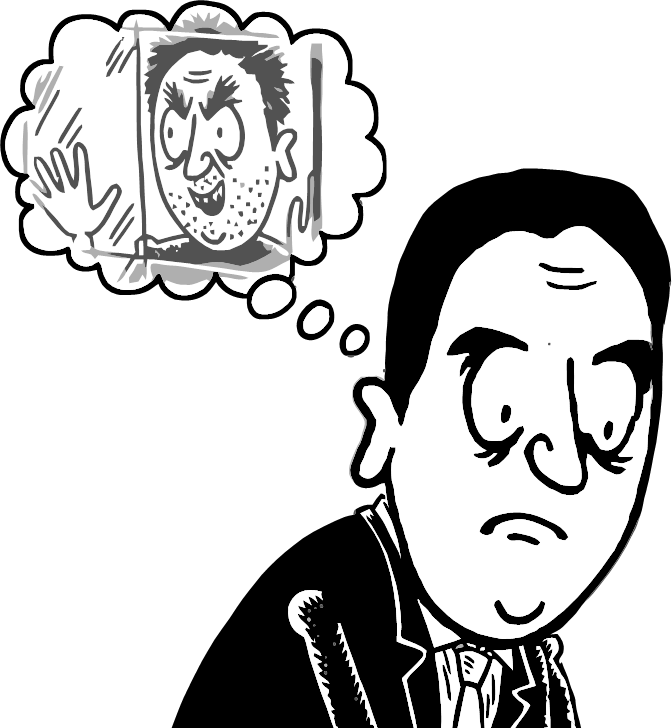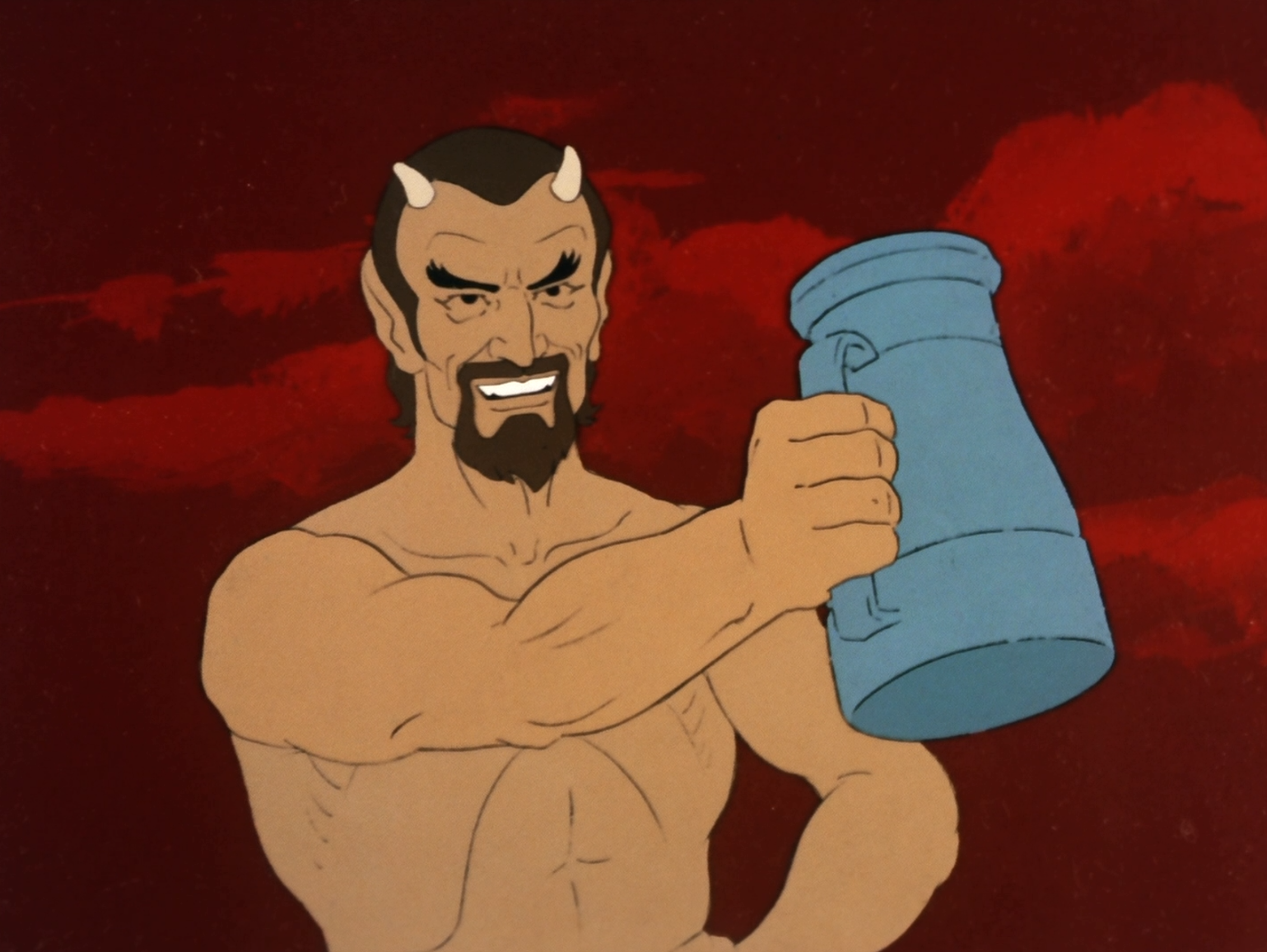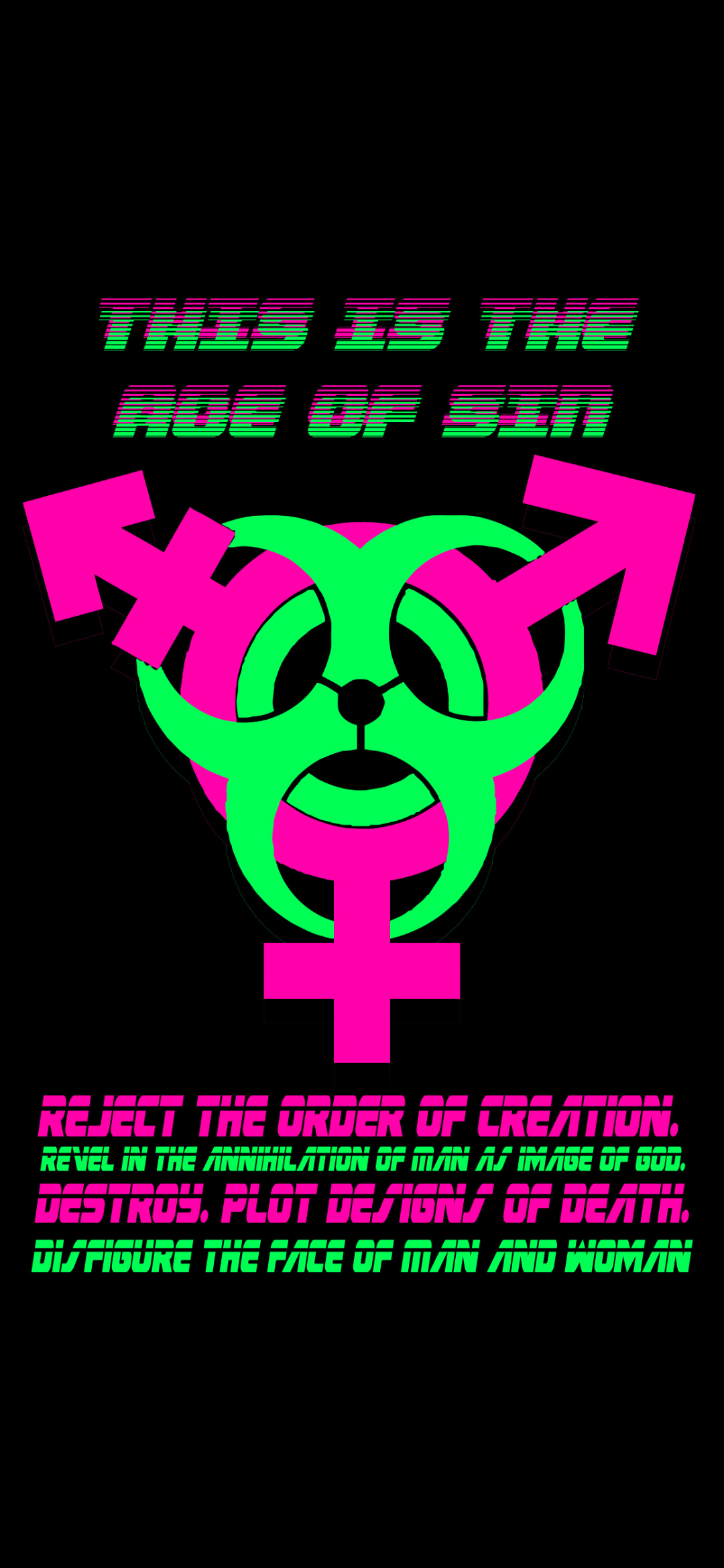
Having Lolita as your favorite book is odd but can be defensible, describing it as a “love story” is something fucking else. It’s like calling “The Little Matchstick Girl” an “entrepreneurship story”.
Of Mice and Men was a story about two guys who loved animals

No frou-frou symbolism, just a good simple tale about a man who loves petting rabbits
“To Build A Fire” is a cool story about hiking in nature.
“Leiningen Versus the Ants” is an uplifting tale about pest control
“Hatchet” is an instruction manual for small hand axes.
i was going to play devil’s advocate and say that liking lolita doesn’t say anything bad about a person, but a love story??? holy shit, it’s all projection isn’t it?

every single God damn accusation is a confession from these ghouls
Every Single Time
I haven’t read Lolita but I understand that Humbert Humbert is an unreliable narrator who you’re not supposed to sympathize with, so I was willing to give her some slack but a great and tragic love story? Uhhhhhhhhhhhhh
Oof. I was going to say the same thing; Lots of people see their own lives in the story and the way Lolita was failed by the people around her, yadda yadda. But now, Rowling always has to go below and beneath.
I haven’t read it either but I’m told that if you have any critical thinking skills it’s very obvious that what’s his ass is the villain and Lolita is very much a child being abused by an adult. idk how you get either pornography or “a great and tragic love story” out of that.
Lolita had a lot of weird cultural moments back like 20 years ago when it was a favorite of a lot of goth girls I knew. I never really understood why. Looking back I’m about 50/50 on if they were just trolling and being transgressive, or if it was something about how society objectifies young women and puts enormous contradictory demands on them all while subjecting them to abuse.
You need to just not be a pedophile yourself. It’s not subtext here, it’s text. Your 50/50 regarding goth girls you knew liking it is accurate but in thst half were being transgression and the other half is the latter. I’d heard essentially what you had before and gave it a read, the Kubrick movie is what people are generally thinking of, not the book. There is no way you could read that book and take it as an endorsement of pedophilia
is it worth reading?
yeah the prose is outstanding
Nabokov never wrote one likable character in any book. Someone above said Lolita has a “narrator who you’re not supposed to sympathize with”, but you’re not supposed to sympathise with anyone, his is a worldview where people are morally low and sadistic manipulators, or else pathetic rubes being manipulated
The void of the street, revealing nothing of my wife’s departure except a rhinestone button that she had dropped in the mud after preserving it for three unnecessary years in a broken box, may have spared me a bloody nose. But no matter. I had my little revenge in due time. A man from Pasadena told me one day that Mrs. Maximovich née Zborovski had died in childbirth around 1945; the couple had somehow got over to California and had been used there, for an excellent salary, in a year-long experiment conducted by a distinguished American ethnologist. The experiment dealt with human and racial reactions to a diet of bananas and dates in a constant position on all fours. My informant, a doctor, swore he had seen with his own eyes obese Valechka and her colonel, by then gray-haired and also quite corpulent, diligently crawling about the well-swept floors of a brightly lit set of rooms (fruit in one, water in another, mats in a third and so on) in the company of several other hired quadrupeds, selected from indigent and helpless groups. I tried to find the results of these tests in the Review of Anthropology; but they appear not to have been published yet. These scientific products take of course some time to fructuate. I hope they will be illustrated with photographs when they do get printed, although it is not very likely that a prison library will harbor such erudite works.
It’s actually pretty fucking good. The problem is being someone who has it around their house while you’re reading it.
or if it was something about how society objectifies young women and puts enormous contradictory demands on them all while subjecting them to abuse.
SA
A good portion of this category have been assaulted themselves and are looking for explanations of how/why this sort of thing even happens. Just being like “oh, his twisted brain is just broken” isn’t really a satisfactory answer when thinking about something horrifying that’s happened to you. Bear in mind common stats point to 1 in 3 women being sexually abused in their lifetime.
It doesn’t sound like this necessarily aligns with Rowling’s experience. Or if it does, she picked the absolute worst way to cope.
you have any critical thinking skills
From what I understand you don’t really even need that, the book makes it pretty blatant that what the dude is doing is beyond fucked up. The reputation is has is mostly due to bad adaptations of it.
Its emphatically not a love story.
Describing Lolita (a great novel btw) as a great and tragic love story is such a fundamental misreading jfc
damn i’ll DM Lionel Trilling to inform him of his fundamental misreading.
Do you think Lolita is a great and tragic love story?
Cool let us know what the random person says
and i thought people who say Romeo & Juliet is a love story were missing the point… yeesh
Romeo and Juliet is just Lolita v0.
Wait so what’s the takeaway from Romeo and Juliet otherwise? Let dumb family feuds ruin your life?
If you keep up your dumb family feud, your dumb teenagers are gonna drink poison about it. The feud was over nothing, and it took the pointless deaths of their children for the families to recognize it.
Yeah but then it’s still a love story, just one with a takeaway beyond “love good”
A reoccurring thread in the narrative is that Juliet is just Romeo’s most recent infatuation and that he has a history of getting obsessive around women like that.
“Is Rosaline, whom thou didst love so dear, So soon forsaken? Young men’s love then lies Not truly in their hearts, but in their eyes”
damn really? crazy
Rambling, pretentious screed. Probably best to ignore this.
There’s a lot of different themes in Romeo and Juliet and it’d do it a bit of a disservice to say it’s about this one thing in specific.
But, Romeo’s fickleness is a consistent through line.
Like, the first scene Romeo appears in is an argument between Romeo and his cousin Benvolio. Romeo is still pining over Rosalind rejecting him, and Benvolio tells Romeo that he’ll thinks he’ll fall for the next woman he meets.
“Be ruled by me, forget to think of her. By giving liberty unto thine eyes; Examine other beauties.”
Romeo tells Benvolio that he’ll never love another woman (note: this is dramatic irony, the ACT 1 prologue speech has already informed the audience he’s going to fall in love with Juliet):
“The precious treasure of his eyesight lost: Show me a mistress that is passing fair, What doth her beauty serve, but as a note Where I may read who pass’d that passing fair? Farewell: thou canst not teach me to forget.”
Romeo’s closest friend is Mercutio. When he sees Romeo making a beeline for Juliet during a party they’ve snuck into he has this to say:
“Nay, I’ll conjure too. Romeo! humours! madman! passion! lover! Appear thou in the likeness of a sigh: Speak but one rhyme, and I am satisfied; Cry but ‘Ay me!’ pronounce but ‘love’ and ‘dove;’ Speak to my gossip Venus one fair word, One nick-name for her purblind son and heir, Young Adam Cupid, he that shot so trim, When King Cophetua loved the beggar-maid! He heareth not, he stirreth not, he moveth not; The ape is dead, and I must conjure him. I conjure thee by Rosaline’s bright eyes, By her high forehead and her scarlet lip, By her fine foot, straight leg and quivering thigh And the demesnes that there adjacent lie, That in thy likeness thou appear to us!”
And, like, other than those two, the only person Romeo confides in is Friar Laurence (who I quoted in my previous comment).
So, both the events of the play and exposition from characters closest to him all take pains to highlight Romeo’s tendency to fall into obsessive infatuation, only to immediately forget about them the moment the next object of his lust crosses his view.
That’s not to completely invalidate interpretations of Romeo and Juliet as a tragic love story, just that it interpreting solely as that requires flattening out a lot of the wider themes.
Sorry for the text wall.
Love is pointless if you don’t communicate. If you don’t trust your partner enough to tell them about your exit plan, maybe it wasn’t meant to be.

If she’s so reclusive then why are we constantly hearing her spout TERF bullshit?
Yes and 9/11 was a love story too
So romantic how much those planes and buildings loved eachother.
A double-date made in hell.
Does this mean Building 7 is a third wheel?
Remember Me (2010)
Now I’m imagining a movie about 9/11 told similarly to The Titanic.
Ok but actually they did do this and it’s called Remember Me.
Something to be said for the subplot of the investment bankers fatal attraction to the ground as well, good story all around
It’s a good book tbh
I would give a great deal to master a second language as well as Nabokov mastered English, the prose is incredible. but it is definitely not a “love story” 🤮 and describing it as such says volumes
I read an excerpt from one of her newer books, it was introducing a character and within like a paragraph it says something along the lines of “and the weird shape of his body made you wonder what his dick looked like”.
famously reclusive millionaire writer
Maybe if she’d stayed that way she wouldn’t have to whine about being cancelled and being put through a witch trial or whatever

Unfortunately, the internet has given voice to millions of misanthropic recluses who people would otherwise not have to deal with.
You do not, under any circumstances, have to hand it to that book
The problem isn’t the book inherently, but the inevitable reception when put in the hands of pedophilic cultures like those of the anglosphere. Nabakov was adamant, for example, that the cover should not depict Lolita (the character) in any literal sense (or any person, iirc), for obvious and correct reasons. You can look up what cover art has nonetheless been used if you are feeling masochistic.
I blame Kubrick. He brought in the heart shaped sunglasses.
The book is fine. It does not at all empathize with the pedophile, it doesn’t sexualize Lolita. Stanley Kubrick’s film adaptation however, is totally fucked up. The book is about a fucked up subject for sure, but it absolutely condemns it.
Whatd Kubrick do to the adaptation?
From what I understand, while the book is told from the perspective of the pedophile, who is proven to be lying or wildly distorting things in a brief moment when the victim gets to speak, the movie mostly plays it straight, with the child seducing a grown-ass man.
Someone else got to it first. The movie is where the heart shaped sunglasses and lollypop imagery came from and absolutely sexualizes a child.
I was prepared to say “ehhhh, weird choice for a book to gush about to the media, but it does have really exceptional prose” until I got to “great and tragic love story.” I guess I shouldn’t be shocked that she doesn’t have very good reading comprehension since her books aren’t known for their subtly either, but damn. That’s the kind of fundamental misreading that you rarely even see in high school English classes.
I had to dig up my dog-eared copy. *Lolita *is many things, but I’d contend it is, in part, a story of love (unrequited, damaging, enduring; about the reflection that comes from lost love), that it is tragic, and even if foregrounding the love story doesn’t strike you as the most felicitous reading, it is a plausible reading, shared by others, making Rowling’s comment totally unremarkable.
Some opinions RE *Lolita *as love story:
Amy Hungerford:
(recognizing the love-story reading/framing of the novel)
*Lolita *is, I think, for Nabokov, a kind of chess problem. The chess problem is: how can Nabokov make us identify with a pedophile? How can he produce, from these debased ingredients, what Lionel Trilling called it–and you have this blurb on your back cover– “the greatest love story of our time”? That’s a question for you: is it the greatest love story of our time? Was Lionel Trilling–a great mid-century literary critic–was he seduced by Humbert? What would it mean to be the greatest love story of our time? But certainly Nabokov has in mind the rhetoric of love stories, the shape of love stories, and he’s using those, with all the skill he can muster, to try to make us enter in to the ecstasy that he describes at the heart of this kind of logical problem, the setting up of this logical problem. So, in a way we are the solvers of this problem for him; we are the other half that completes the aesthetic experience; we are there to participate in it with him.
~~
Lionel Trilling (arguing that the novel is about love).
More Trilling (discussing the book w/ Nabokov, contending the same).
~~
Gregor von Rezzori:
(contending the same, and source of common book jacket quote)
At one point a heated discussion arose over the possible interpretation of *Lolita *as a grandiose metaphor of the classic European’s hopeless love for a young, seductive, barbaric America. In his afterword to the novel Nabokov himself mentions this as the naïve theory of one of the publishers who turned the book down. And although there can’t be the slightest doubt that Nabokov did not mean to limit *Lolita *to that interpretation, there is no reason to exclude it as one of the novel’s many dimensions. The point, I felt, became obvious when one drew the line between *Lolita *as a delightfully frivolous story on the verge of pornography and *Lolita *as a literary masterpiece, the only convincing love story of our century. If one accepted it as the latter, there was no longer a question of whether to read it as “old Europe debauching young America” or as “young America debauching old Europe.” It simply stood as one of the great examples of passion in literature, a deeply touching story of unfulfillable longing, of suffering through love, love of such ardor that though it concentrated on its subject monomaniacally, it actually aimed beyond it, until it flowed back into the great Eros that had called it into being. Every passionate love can find its image in Humbert Humbert’s boundless love for Lolita, I said; why should it not also reflect the longing of us Europeans for the fulfillment of our childhood dreams about America? As for myself, that longing had become irresistible from the moment, in our translation, when we arrived at Lolita and Humbert’s crisscrossing of the United States. I vowed then that someday humble humble me would follow in their tracks.
~~
But textually, (spoiling):
*Lolita *is colorably about love and is a love story (however unrequited). Humbert, selfishly, jealously lusts after Dolores, by his own monstrousness actions, loses her (losing what you’re longing for, precising by your longing, this is tragedy, no?). He finds her years later, aged out for pedophilic interest, and no longer a great beauty, and yet still has great love for her: “I insist the world know how much I loved Lolita, this Lolita, pale and polluted, and big with another’s child . . . . Changeons de vie, ma Carmen, allons vivre quelque part où nous ne serons jamais séparés; . . . Come just as you are.”
She has moved on. Years later and without her, he can reflect on his perversity and solipsism:
[N]othing could make my Lolita forget the foul lust I had inflicted upon her. . . . a North American girl-child named Dolores Haze has been depraved of her childhood by a maniac . . . .
[I]t struck me . . . that I simply did not know a thing about my darling’s mind and quite possibly, behind the awful juvenile cliches, there was in her a garden and a twilight, and a place gate–dim and adorable regions which happened to be lucidly and absolutely forbidden to me, in my polluted rags and miserable convulsions . . . .
He then finds and kills Quilty, (his foil, the unrepentant pervert) and in closing, upon hearing the din of children playing, finally shows empathy/compassion.
And soon I realized that all of these sounds were of one nature, that no other sounds but these came from the streets of the transparent town, with the women at home and the men away. Reader, what I heard was but the melody of children at play, nothing but that, and so limpid was the air that within this vapor of blended voices majestic and minute, remote and magically near, frank and divinely enigmatic, one could hear now and then, as if released, an almost inarticulate spurt of vivid laughter or the crack of a bat or the clatter of a toy wagon, but it was all really too far for the eye to distinguish any movement in the lightly etched streets. I stood listening to that musical vibration from my lofty slope, to those flashes of separate cries with a kind of demure murmur for background, and then I knew that the hopelessly poignant thing was not Lolita’s absence from my side, but the absence of her voice from that concord.
Humbert’s story/memoir, which started as some self-pitying, arrogant, indulgent exculpation, ends, he recognizes, as an artefact toward his lost love/ his great love – “I am thinking of aurochs and angels, the secret of durable pigments, prophetic sonnets, the refuge of art. And this is the only immortality you and I may share, my Lolita.” From the Forward, we know HH wants to publish only after he and Dolores are dead; he means to not to burden her more anymore.
It’s beautiful, not just Nabokov’s mastery of language and tone and allusion, but even the sentiment. And it’s very relatable, for those of us wretches (but who are, emphatically, **not **perverts, I assure you), who have lost great loves through our own selfish actions/ inactions. Surely there are many, valid reasons to dislike Rowling: her books show a conspicuous deferral to power and hierarchy; her politics show a conspicuous and callous cruelty. This short characterization of Lolita, which is shared by critics and authors, and which is not foreclosed by the text, is not one of them.
I found a YouTube link in your comment. Here are links to the same video on alternative frontends that protect your privacy:
JK Rowling has a lot of issues and every interview I’ve seen of her unravels it more and more























